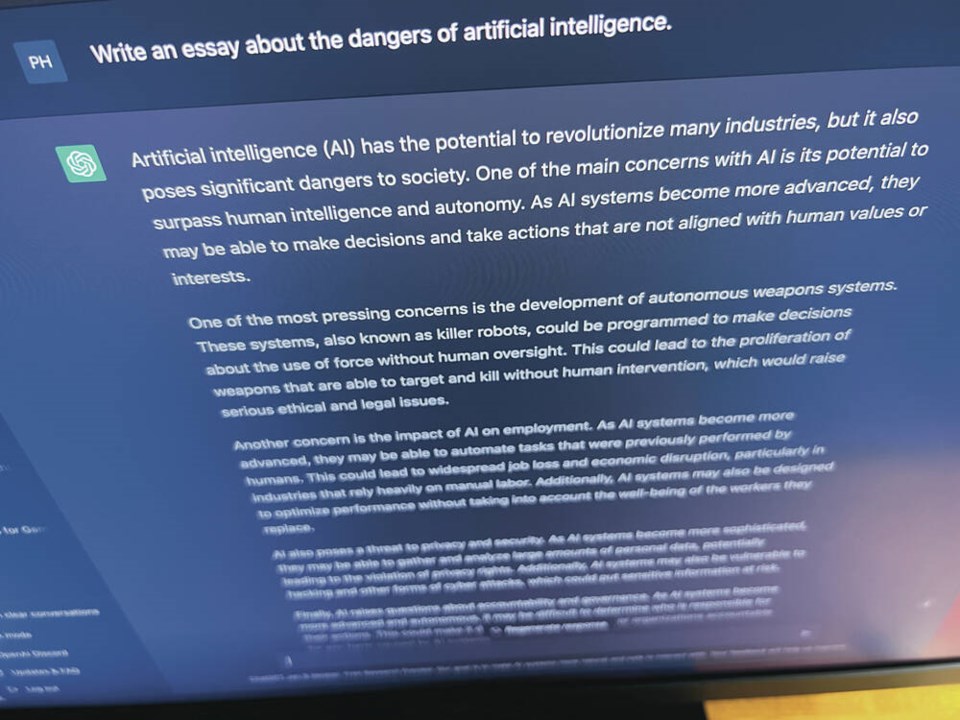Throughout history, humans have proved remarkably adept at embracing new technology.
We’ve used technological advances to make our lives easier, to automate and speed up menial tasks and to draw on vast amounts of information beyond our own experience.
Many people alive today can’t even remember a time before Google and the internet (when if you wanted to know something, you had to phone a reference librarian).
Today, enter AI.
Previously the realm of computer geeks and sci-fi writers, in the past six months, artificial intelligence has entered the mainstream. Anyone with an internet connection can now ask the bots to plan their vacation, write their resume or design a logo.
AI chatbots are powerful and will likely disrupt the way we approach many tasks. They also raise questions, from their impact on the workplace to darker scenarios where AI runs amok and becomes unpredictable.
More immediately, while chatbots are trained to be very good at producing plausible-sounding answers to questions, some of that information produced isn’t true. In many cases, it’s also not possible to find out where the fake information came from.
In a world where authoritative-sounding answers are just seconds away, how do we determine what’s real and what’s not? And what if fake answers are damaging?
Unlike the case with Google or other search engines, with AI there’s no obvious avenue of appeal.
The change AI brings to our lives will likely be fast and furious. Hanging on to our own critical thinking skills in the face of these advances will be just as important.


